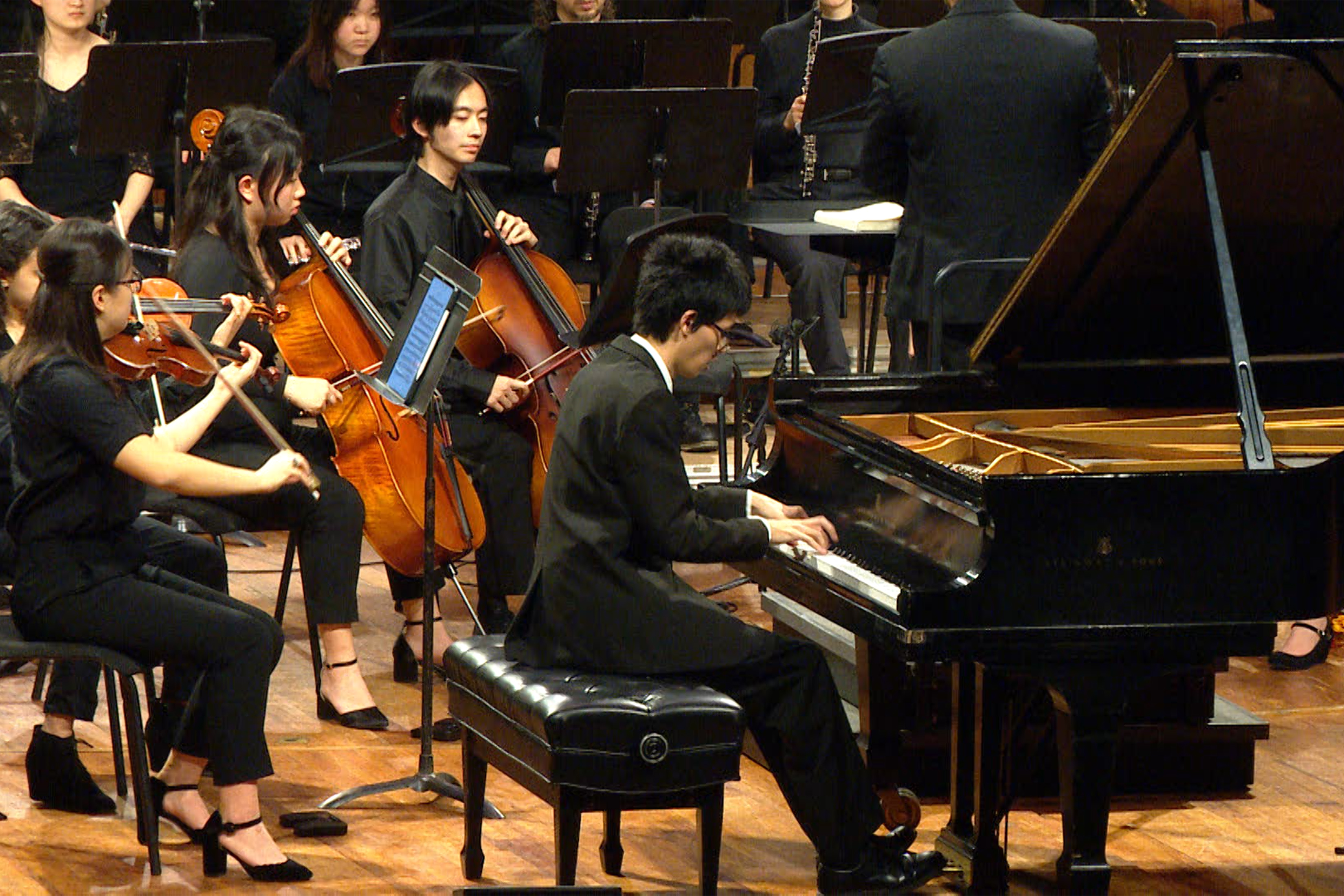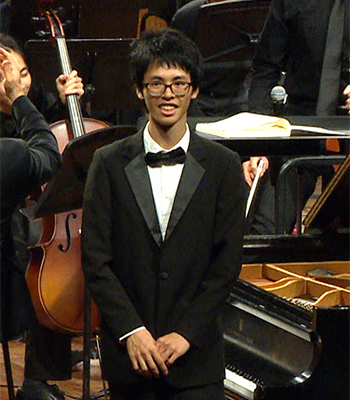Soloist to Play Gershwin at Tech Night at Pops
-
-
Slice of MIT
Filed Under
Recommended

Celebrating its 126th year, Tech Night at Pops is part of MIT Tech Reunions, which will take place on campus May 31–June 2, 2024. (Some milestone reunion classes will celebrate May 30–June 2). Learn more.
Holden Mui ’25 got his musical start on a toy piano at age five. Now years of practice have paid off and he’s preparing to perform a piano solo with the renowned Boston Pops Orchestra at Tech Night at Pops, one of the most beloved events of Tech Reunions, which will take place May 31–June 2 on and around MIT’s campus.
The performance on Friday, May 31, at Symphony Hall in Boston will be just his second with a major orchestra, and Mui is looking forward to it. “I’m not a professional pianist, so it’s hard for me to get opportunities to play with an orchestra,” says Mui, whose first chance came last November, when he soloed with the MIT Symphony Orchestra. “It’s a really fun experience.”

He will be playing Rhapsody in Blue by George Gershwin in honor of the 100th anniversary of the composition, which fuses classical elements with jazz stylings. “I love Rhapsody in Blue. I’ve known of the piece since middle school, so it’s great I get to finally play it with an orchestra,” Mui says.
Dubbed a “musical genius” at 13, Mui has come a long way since his parents first recognized his passion for the toy piano and upgraded him to a full-sized instrument. Even before coming to MIT, he won the primary, junior, and intermediate divisions of the Society of American Musicians Piano Competition. An early lover of composing, he also won the prestigious Music Teachers National Association competition for composing at both the junior and senior levels.
At MIT, Holden was accepted into the MIT Emerson/Harris Fellowship Program as a pianist and joined the MIT Symphony Orchestra as a violist. He has since been involved in chamber music, conducting, and composition. Yet, Mui didn’t choose MIT for its conservatory-level music offerings. While he says the strength of the music program has proved “a very nice side benefit,” he came to MIT to study mathematics.
A passionate math competitor since seventh grade, Mui just barely missed the chance to compete in the International Mathematical Olympiad (IMO), which each year pits six-person teams of high school students from more than 100 countries against each other in a two-day, nine-hour math battle. Since then, Mui has been writing math problems for competitors: He wrote two of the six problems students faced last year at the USA Math Olympiad, the national contest that feeds into the IMO.
A double-major in math and music, Mui says creating math problems is surprisingly similar to writing music. In both cases, the work needs to be complex enough to be interesting without becoming unapproachable. Also, it needs to feel fresh. “You want really original problems. And that’s like trying to write down an original melody,” he says. “To write math problems, you have to have seen a lot of math problems before. To write music, you have to know the literature—Bach, Beethoven, Chopin, Ravel… everything.”
Over the past few years, Mui has traveled the world helping high school students in other countries learn the skills they need to do well in the IMO. Thanks to the MIT International Science and Technology Initiatives (MISTI) program, Mui was able to travel to Ghana, Tunisia, and Bhutan to coach high school students in skills for the contest. “The students are all very, very bright and very motivated,” he says. “Their desire to learn more about mathematics reminded me of me in high school. The only difference was, these students didn’t know where the resources were to get better.”
Working with students is so much fun, Mui says, that he currently plans to get a PhD in mathematics focused on algebraic combinatorics and pursue a teaching career as a math professor.
As for music, Mui says, “I plan to keep it as a hobby for the rest of my life.”








